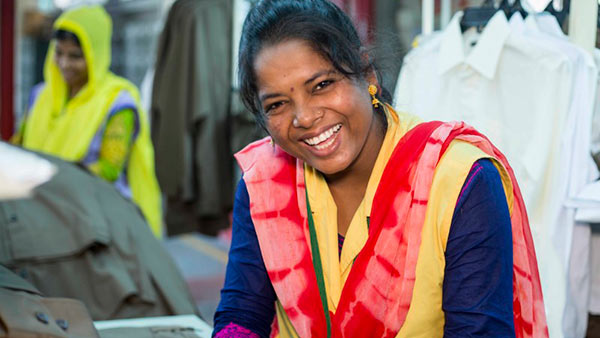Many female workers in global supply chains experience high levels of harassment and violence, both in the workplace and in their personal relationships.
This violence, which can be economic, emotional, physical, or sexual, deprives women of their basic human rights and compromises their well-being. In addition, an increasing amount of evidence shows that when the well-being of workers suffers, businesses and economies are negatively impacted. Violence against women is bad for business, and there is a high cost to inaction.


